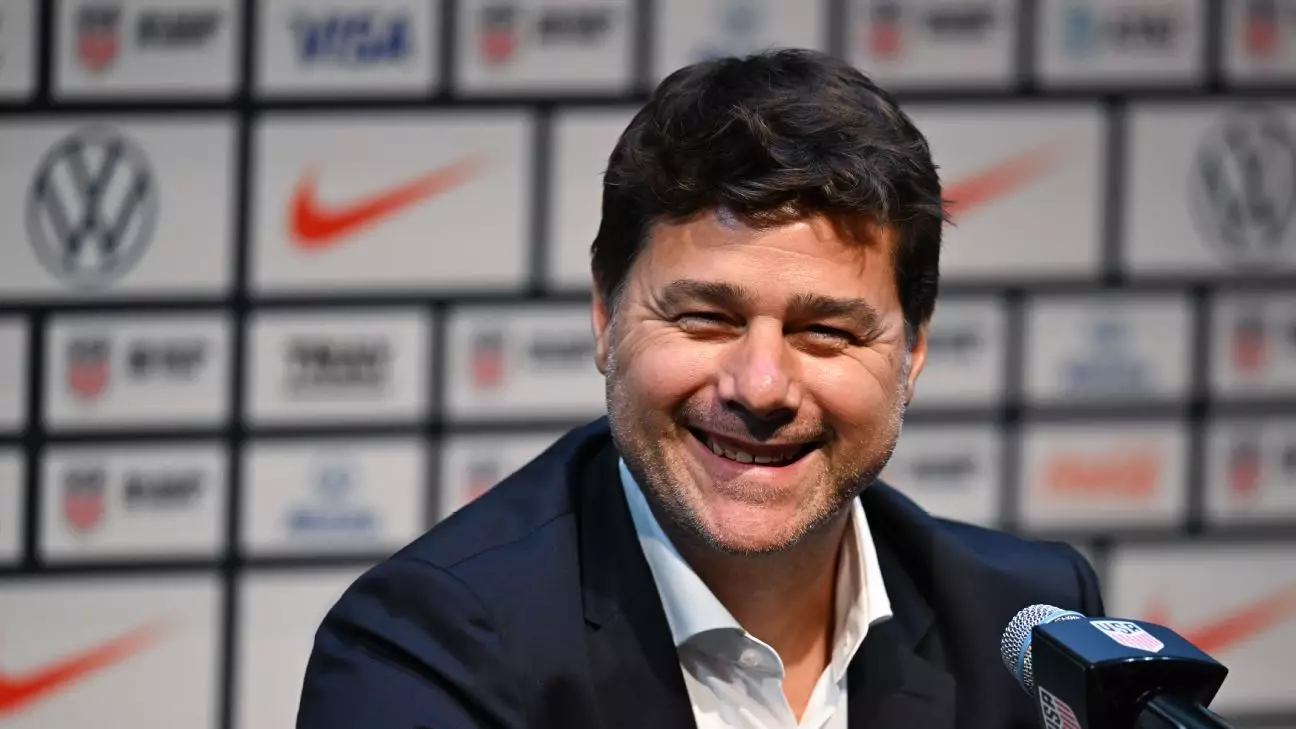The recent hiring of Mauricio Pochettino as head coach of the United States men’s national soccer team (USMNT) marks a significant shift in the direction and ambitions of U.S. Soccer. Chris Richards, a defender for the USMNT and Crystal Palace, articulates the sentiment that this choice signifies a commitment to serious growth within the sport in America. Unlike past selections that may have leaned towards safer, more familiar options—possibly from within Major League Soccer—the decision to pursue a coach of Pochettino’s ilk is indicative of a bold vision. The presence of a globally recognized figure at the helm could catalyze a new era of success and elevate standards across the sport.
Richards emphasizes that Pochettino’s reputation and prior successes in club football send a clear message about the aspirations of U.S. Soccer. His anticipation of competitive exploits under the new coach suggests optimism not only for immediate outcomes but also for a longer-term trajectory that positions the USMNT as a formidable force on the world stage. With the 2026 FIFA World Cup looming, which will take place across the U.S., Canada, and Mexico, the timing of this strategic decision could not be more critical.
However, as Richards navigates his own challenges—including a hamstring injury that has sidelined him for the immediate future—he remains deeply connected to the aspirations of his teammates. While he will miss the first matches under Pochettino’s regime, he is keenly aware of the transformative journey that lies ahead for USMNT as they prepare for upcoming fixtures against Panama and Mexico. This missing link serves as a poignant reminder that the path to greatness is often fraught with obstacles, yet also full of possibilities.
Richards’s emphasis on his desire to win the World Cup reflects a mindset that is ambitious yet focused. The goal is not just participation but rather to emerge as champions. This winning mentality needs to be embedded in the culture of U.S. Soccer, as Richards advocates for a collective shift towards aspiring for the pinnacle of success in world football.
One of the critical challenges that Richards highlights is the issue of accessibility in youth soccer. He points out that while soccer continues to grow in popularity, particularly among young people, the existing “pay-to-play” model often excludes participants who may lack financial means. This financial barrier represents a significant roadblock to broader participation and is an area in which Richards sees an urgent need for reform.
The geographic size of the United States exacerbates these challenges as traveling for games and training incurs additional costs. For soccer to truly flourish and diversify in the country, systemic changes are necessary to mitigate the financial burdens placed on families. A more inclusive model that allows children from various backgrounds to engage in soccer without the encumbrance of high costs could broaden the sport’s appeal and generate a larger pool of talent for future generations.
Additionally, Richards expresses hope that the upcoming World Cup will act as a catalyst for change, influencing policies and structures within U.S. Soccer and Major League Soccer (MLS) to promote affordable alternatives for youth participation. The vision extends beyond simply playing the game; it encapsulates developing an equitable system where anyone with talent and passion can pursue soccer, unhindered by their economic circumstances.
In tandem with discussions about Pochettino and the broader goals of U.S. Soccer, the news surrounding midfielder Tyler Adams also fosters hope among fans and team members alike. Adams, who has faced his own share of setbacks due to injuries, is on track for a return to the pitch. His journey underscores the resilience required in professional sport and the importance of having experienced leaders in the squad, especially as the team transitions under new leadership.
As he prepares for a phased return to game action, it’s clear that his presence will be invaluable to the squad’s morale and performance. His experience and leadership, especially after undergoing surgery, reflect not only personal perseverance but also an opportunity to strengthen the collective resolve of the USMNT.
The spectacle of soccer in the United States is undeniably evolving. With visionary leadership in Pochettino, a budding sense of purpose among players like Richards and Adams, and a critical eye towards making the sport accessible to all, the future looks promising. U.S. Soccer stands at a pivotal juncture, armed with ambition and the potential for significant growth, both on and off the field.

